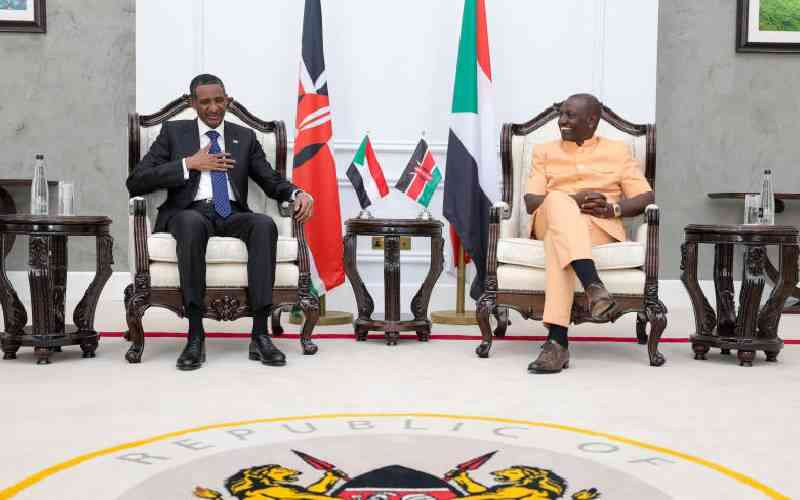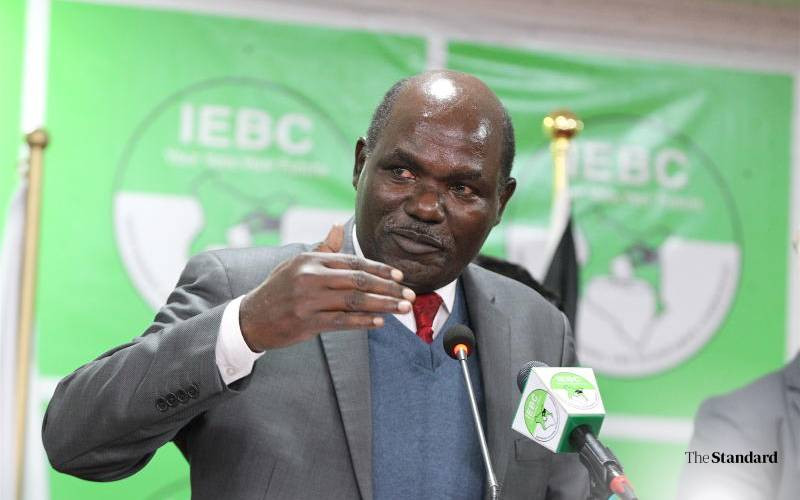[File, Standard]
The High Court has been asked to block Sudan’s Rapid Support Force (RSF) from signing any political agreement with political forces and armed groups in Kenya.
Five petitioners want Nairobi barred from interferering with the political interests of another country, saying it threatens Kenya’s national security, peace and stability.
Foreign and Diaspora Affairs Cabinet Secretary Musalia Mudavadi, his Interior colleague Kipchumba Murkomen, the Inspector General of Police Douglas Kanja, and the Attorney General Dorcas Oduor have been sued following the meeting of RSF in Nairobi on Monday, when the militia group annpunced it form a parallel government.
Evans Omondi, Timothy Karanja, Mjeni Mulinga, Abdulahi Mohamed, and Asha Khadija argued that allowing Hemedti and allies to remain in the country and sign agreements undermined Kenya’s sovereignty and non-involvement in the territorial affairs of other countries.
Their lawyer, Harry Aruda, said that the move by the Kenya Kwanza government was endangering Kenyans as there is a likelihood that the other warring side are likely to take retaliatory measures.
“The actions of the first respondent in holding its meeting in Kenya is a violation of the constitution and had caused a diplomatic spat between Kenya and Sudan, who have vowed to retaliate against Kenya, thereby threatening the country’s peace and stability,” said Arruda.
According to him, Sudan has accused RSF of genocide, the massacre of civilians on an ethnic basis and attacks on Internally Displaced persons in camps and rape.
Aruda argued that although the foreign affairs CS had claimed that Kenya was a neutral arbiter, SAF was not in the country.
“The second respondent’s (CS) response is inaccurate as not all warring factions were presented in the said meeting, and the declaration that came was that of forming a parallel government, which is inconsistent with the role of an impartial state,” he said.
Meanwhile, experts have called for a stop to weapons supply to both warring sides in Sudan.
Former Tanzania Chief Justice Mohamed Osman Chande said that the solution to end the war in Sudan is to ensure that neither RSF, which is commanded by Mohamed Hamdan Dagalo alias Hemedti, nor Sudan Armed Forces (SAF) under Abdel Fattah Al-Burhan have weapons.
Justice Chande, who is the chairman of the United Nations fact-finding mission in Sudan, said that sanctions are not enough as the two are still accessing weapons.
“All estimates are that the violence and victimization have increased tremendously. We have gone to the worse. Sudan is being torn right before our own eyes. Extend to the arms embargo to cover the whole territory,” said Chande.
He spoke during the international justice symposium on advancing accountability for international crimes in Africa.
At the same time, Kenya Supreme Court judge Isaac Lenaola, who spoke at the same event organized by Wayamo Foundation, advocated for local and regional solutions to international crimes.
Stay informed. Subscribe to our newsletter
Justice Lenaola said that Kenya has an International Crimes Act, which was enacted 17 years ago, and an international crimes division of the High Court.
He further said that discussions between East African region partners are underway to expand the powers of the East African Court of Justice (EACJ) to deal with international crimes.
Mohamed Elnu’man, a Sudan legal expert, said that the war has shifted beyond the two groups.
According to him, the dynamics of war in Sudan now include religious and criminal militias.
The petitioners want the court to find that the government’s dalliance with RSF violates Kenyans’ right to freedom and security.







